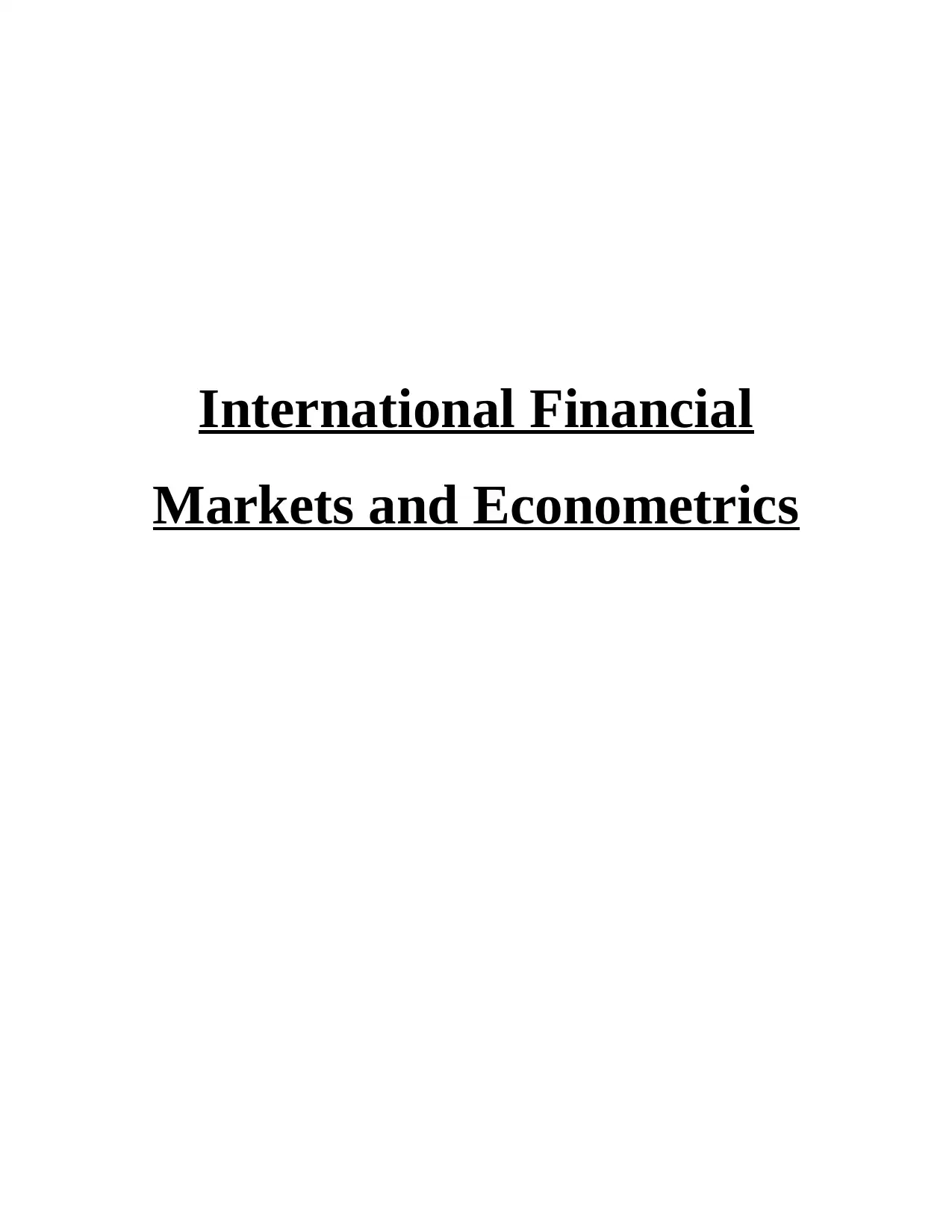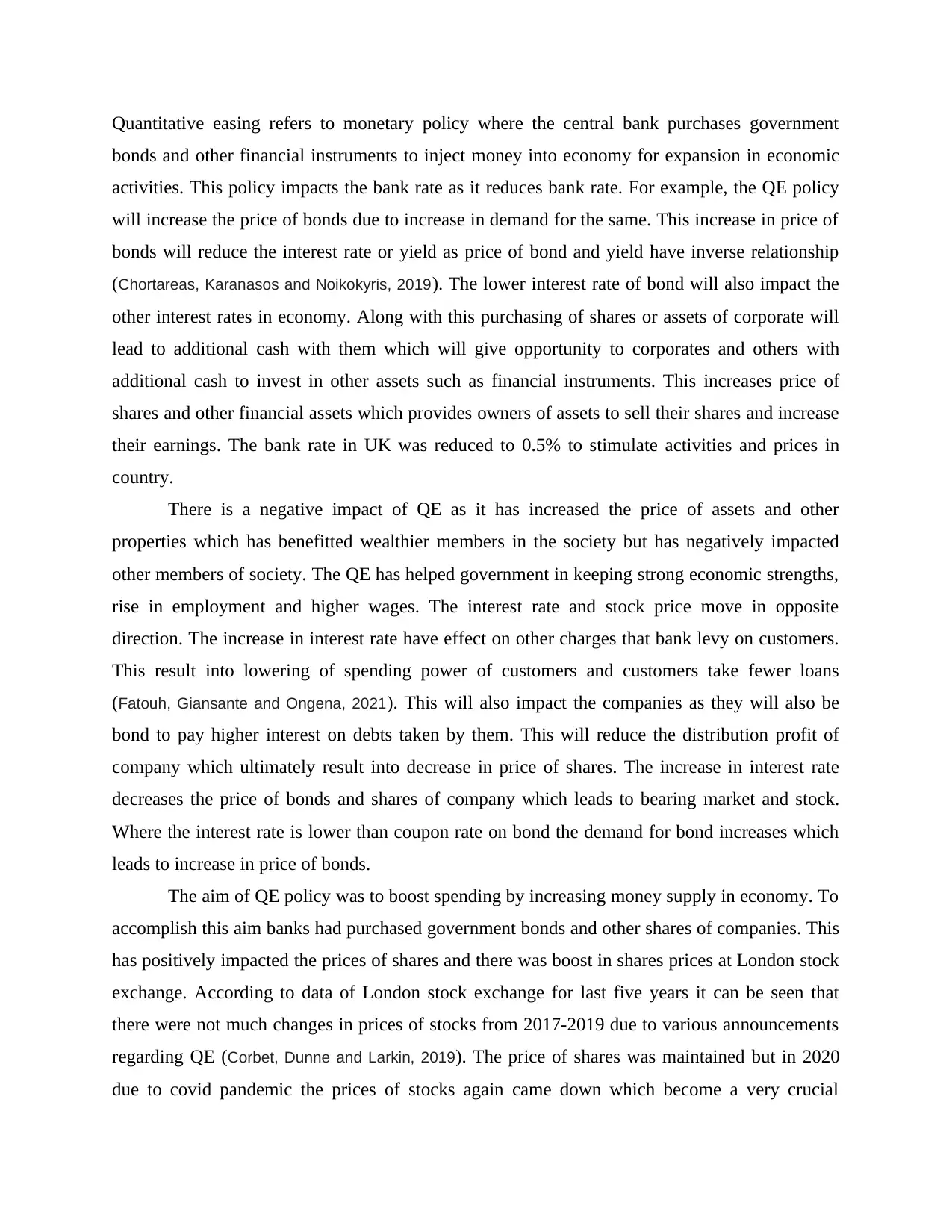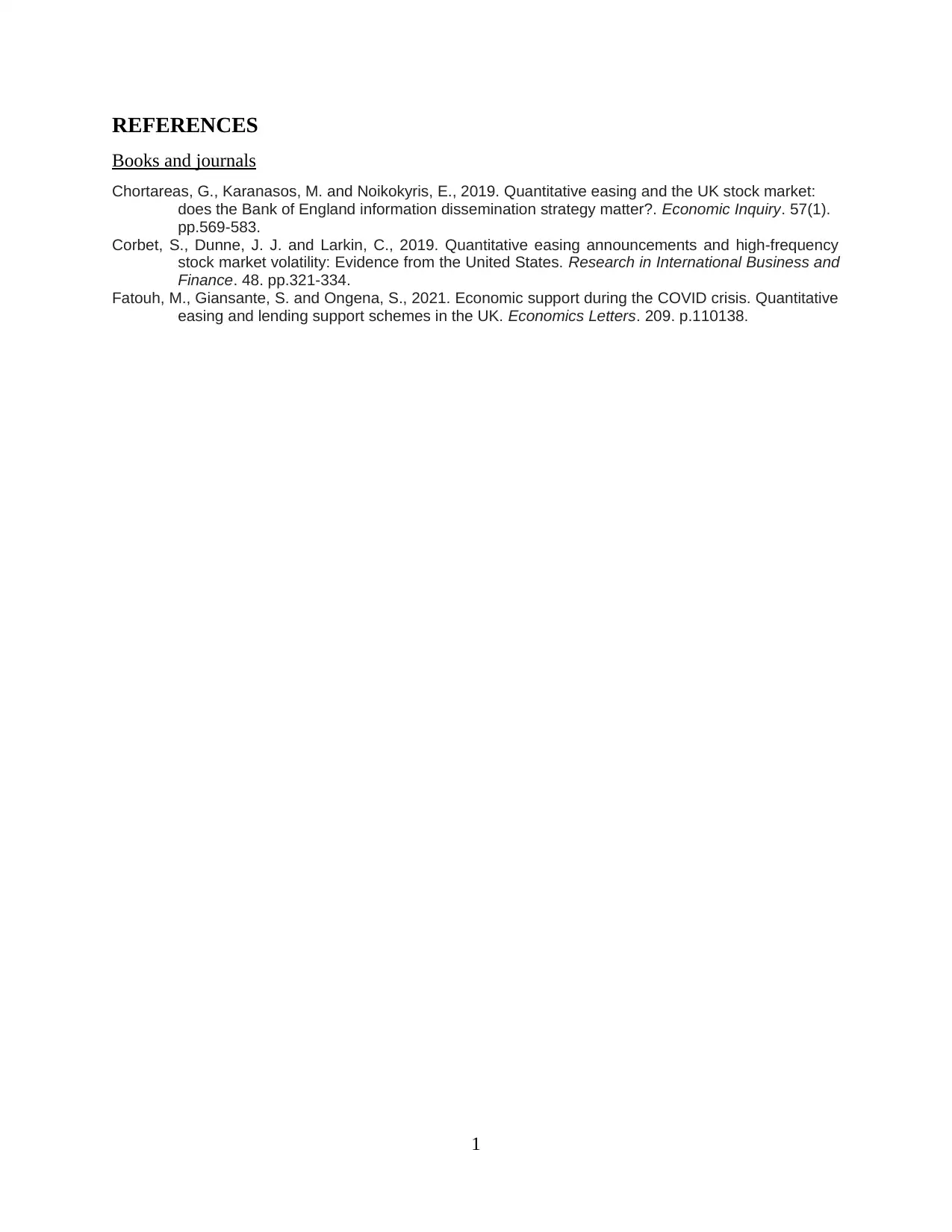Impact of Quantitative Easing on International Finance
VerifiedAdded on 2023/06/05
|5
|707
|240
Essay
AI Summary
This essay examines the impact of quantitative easing (QE) on international financial markets and econometrics, focusing particularly on the UK. It explains how QE, a monetary policy where central banks purchase government bonds and financial instruments to inject money into the economy, affects bank rates by reducing them. The policy increases bond prices, leading to lower interest rates, which in turn impacts other interest rates and asset prices. While QE has helped maintain economic strength, employment, and wages, it has also increased asset prices, disproportionately benefiting wealthier individuals. The essay further discusses the inverse relationship between interest rates and stock prices, noting that higher interest rates can decrease company profits and share prices. It also analyzes the effects of QE on exchange rates, highlighting how lower yields have encouraged investors to exchange UK assets for foreign ones with higher returns. The essay references data from the London Stock Exchange, showing the impact of QE announcements and the COVID-19 pandemic on stock prices, and concludes that while QE initially boosted share prices, the pandemic caused a significant drop, followed by a recovery due to further asset purchases by the bank.
1 out of 5












![[object Object]](/_next/static/media/star-bottom.7253800d.svg)